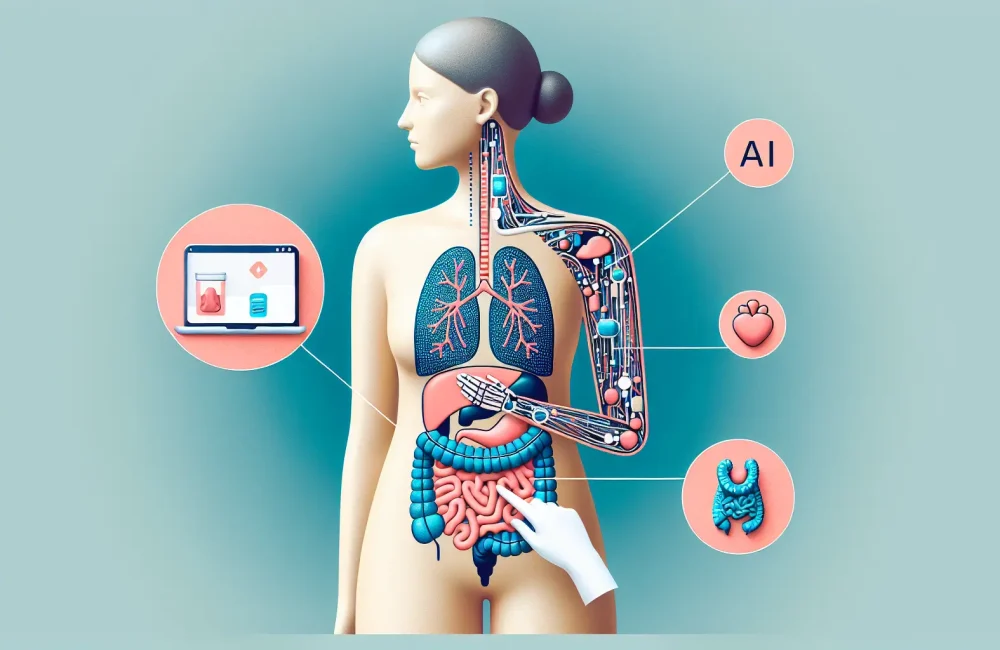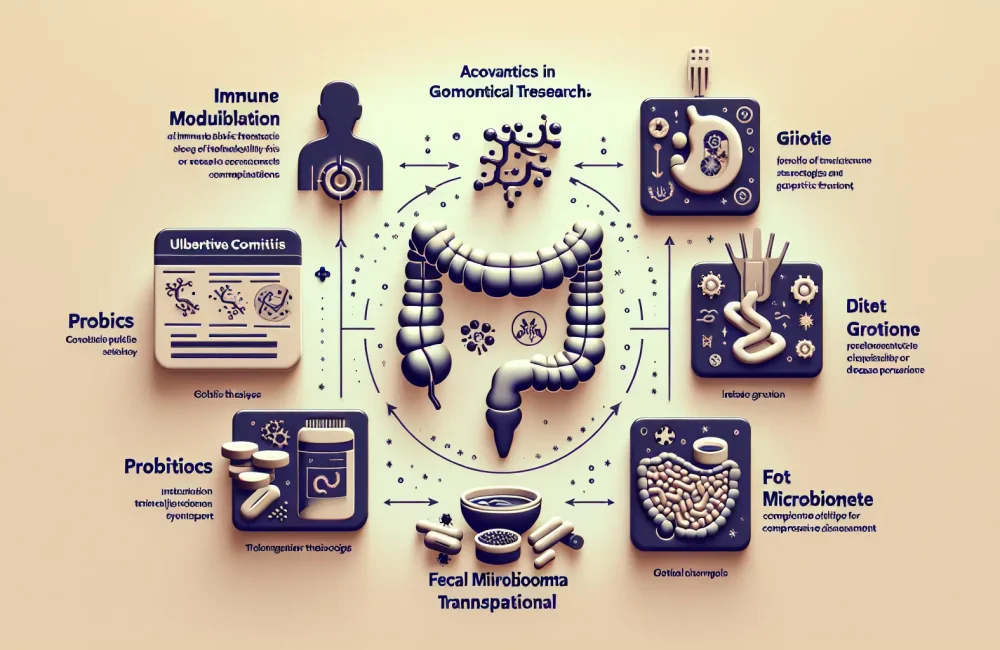By CAFMI AI From Gastroenterology
Automated AI Analysis for Better Body Composition Insights
Inflammatory Bowel Disease (IBD) patients often experience significant changes in body composition, particularly a decrease in skeletal muscle mass and an increase in visceral fat. These body composition changes have important implications for disease progression and patient outcomes. Traditional methods for assessing these parameters, such as manual segmentation of CT images, are time-consuming and complex, limiting their routine use in clinical settings. This study evaluated an automated deep learning software designed to rapidly and accurately quantify skeletal muscle and visceral adipose tissue from abdominal CT scans of IBD patients. Using retrospective data, the algorithm analyzed images at the third lumbar vertebra (L3) level, a standardized anatomical landmark for body composition assessment. The automated software consistently delivered accurate segmentation results comparable to expert radiologists’ manual analyses. Notably, this rapid and precise tool showed promise for seamlessly integrating into clinical workflows, overcoming previous barriers to routine body composition evaluation in IBD management.
Clinical Findings and Implications for Inflammatory Bowel Disease
The study revealed that a substantial proportion of IBD patients had decreased skeletal muscle mass and increased visceral adiposity, both of which were significantly correlated with worse disease activity scores. These findings underscore the role of sarcopenia and visceral fat accumulation as important clinical markers in IBD. Reduced muscle mass is associated with poorer physical resilience and may predict more severe disease courses, while higher visceral fat levels are linked to chronic inflammation and metabolic disturbances that could exacerbate IBD symptoms. Incorporating automated body composition analysis could therefore enhance risk stratification, enabling clinicians to identify patients at higher risk for adverse outcomes. This could directly inform tailored therapeutic plans, such as nutritional interventions, exercise programs, and closer disease monitoring, to improve overall patient management and prognosis.
Integration into Clinical Practice and Future Directions
Automation of body composition analysis via deep learning software represents a significant advance toward personalized IBD care. The software’s rapid processing—compared to manual methods—supports its use in busy clinical environments, potentially improving timely decision-making. By quantifying both skeletal muscle mass and visceral adiposity, clinicians can gain comprehensive insights into a patient’s nutritional and inflammatory status. This integration could complement existing clinical and biochemical markers, enhancing holistic assessment and management in IBD. Future research should focus on prospective validation, exploring how these AI-generated metrics can guide therapeutic adjustments and improve long-term patient outcomes. Additionally, the scalability of this technology suggests broader applications beyond IBD, in other chronic inflammatory or metabolic conditions where body composition plays a crucial role.
Read The Original Publication Here






